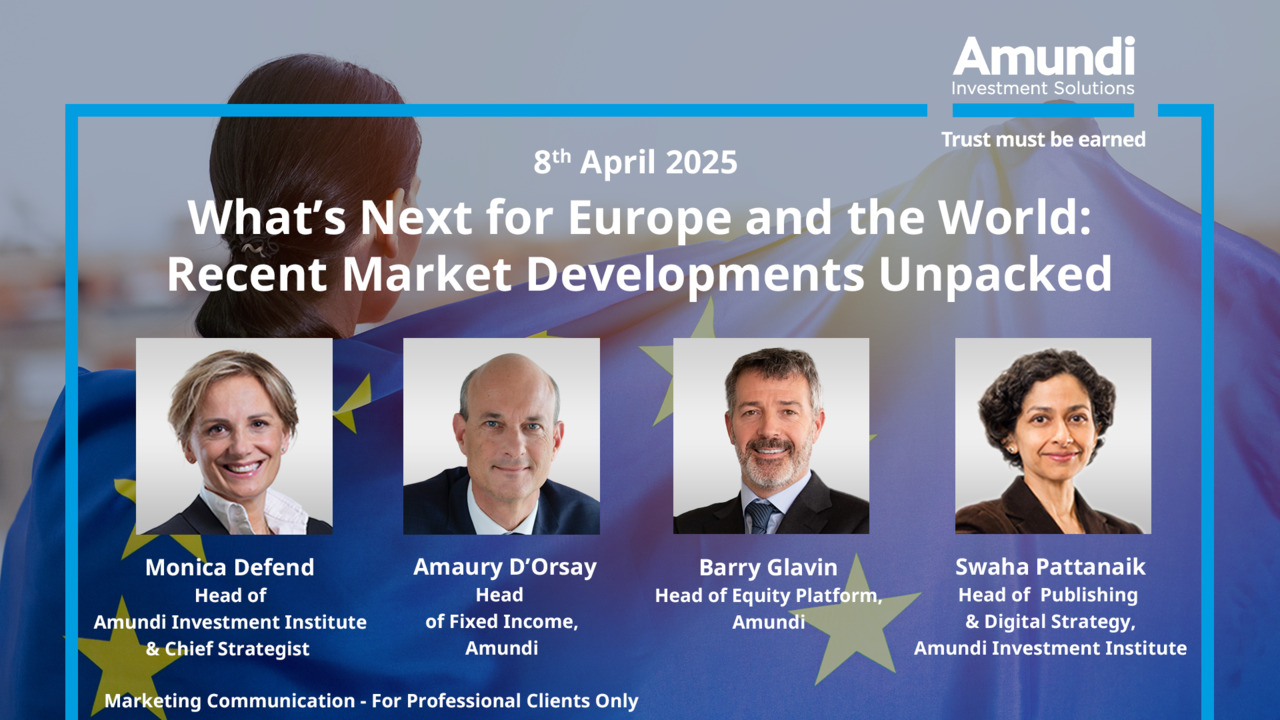Against a backdrop of rising geopolitical tensions and a shifting transatlantic relationship, our panel of experts - Monica Defend, Head of Amundi Investment Institute & Chief Strategist; Amaury D’Orsay, Head of Fixed Income; and Barry Glavin, Head of Equity - share their initial assessments of recent trade tariffs and their implications for the global economy and markets, with a special focus on Europe.
Key Takeaways
Trump’s tariff policies have surpassed expectations, introducing a 10% base levy, reciprocal tariffs of up to 49%, and a confirmed 25% tariff on car imports.
These tariffs are causing significant disruptions to the free trade model and contributing to the depreciation of the USD.
In addition to the risk of persistent inflation, the more significant impact will be on economic growth and corporate earnings.
Europe could emerge as a beneficiary in the ongoing trade conflict with the US: the room for fiscal and monetary policy accommodation, diverse trade partnerships, and appealing market valuations position it as an attractive investment opportunity in both equity and fixed income.
In fixed income, we maintain a flexible strategy regarding duration and prefer European investment-grade securities over those in the US, with a particular emphasis on banks.
In equity markets, Europe is currently more reasonably priced relative to the US, with opportunities in European small-cap stocks and a strong focus on selecting companies with well-diversified supply chains and lower exposure to the trade war.
Investors should focus on diversification, tactical duration strategies, and hedges like gold to create resilient portfolios and take advantage of opportunities that may emerge during this volatile market period.
Watch the playback

More insights on the latest tariff developments

